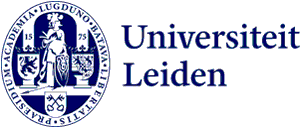
Clichéd version of an autocracy or a restored democracy? The Turkish elections explained
In less than a week’s time, millions of Turkish people are going to decide who will govern their country for the next five years. These elections promise to be the most closely contested in years, with the opinion polls showing very small differences and everything at stake, including for Europe. Alp Yenen, a lecturer and expert in Turkish politics, explains why everyone should follow the Turkish elections.
Will it be president Recep Erdogan and his AKP party again, or does Kemal Kilicdaroglu, the opposition candidate, stand a chance? The two are virtually neck-and-neck in the opinion polls.

What is at stake for Turkey?
‘Turkey has been governed by the AKP for more than twenty years. At first, many people saw it as a victory of a party that stands for liberal Islam. But what the party has mainly brought about is polarisation and marginalisation of secular life. This can be seen very clearly, for example, in Turkish education.
‘And also the economy is in a terrible state and Turkey has an enormous refugee problem, resulting from the deal with Europe. Nothing much will change if Erdogan stays in power. If the challenger Kemal Kilicdaroglu gets in, then he will inherit an economy that’s in ruins and a civil service where all the key positions are held by AKP people. It won’t be easy for him, that’s for sure.’
Who is Erdogan’s main challenger?
‘Kemal Kilicdaroglu is the candidate representing an alliance of six opposition parties and he also has the support of some other parties. He comes from a poor Alevi family, a Turkish minority. He has a left-wing background and is a real bureaucrat, a very calm personality. He symbolises the wise old man, very different from Erdogan, with his aggressive and assertive masculinity.
‘Kilicdaroglu is very good at bringing parties together and he’s also made his own party more truly liberal. In his election campaign he’s promised that as president he will restore a free press and freedom of expression. Now that he also has the support of the Kurdish minority in Turkey, I think he has a real chance of winning.’

Does the devastating earthquake earlier this year play a part in these elections?
‘Definitely, yes, but perhaps less than most people think. For the Turkish people who weren’t directly affected by the earthquake, normal life resumed a long time ago. There’s so much happening in Turkish politics and voters mainly have a short-term memory. Many of the people who actually lost their home or family members have moved away from the disaster area. If they’re still registered there, and a great many of the victims will be, then they’ll have to go back to the area if they want to vote; and the question is whether many people will do that. This means the earthquake will probably have less effect than expected.’
Is there a risk that the elections won’t be fair?
‘That’s a very big question. By now we’re accustomed to the AKP’s intimidation campaigns. But another question is whether this time there will also be a digital “attack”. Kilicdaroglu has already warned Turkish voters about this: “I expect that a week before the election so-called photographs and videos of me and messages from me will appear on social media, but they will be fake.” The question is whether those potential deepfake images and fake messages will have an effect. Personally, I’m worried about a possible attack that can be used to create chaos; chaos that Erdogan will then be able to use.
‘If neither of the presidential candidates gets an absolute majority on Sunday, there will be a second round between the two of them. And if Erdogan loses, the next question is whether he will relinquish his throne without protest.’
Why is the outcome of the Turkish elections important for Europe?
‘If it’s only for the sake of European norms and values, such as freedom of expression and religion, Europe should be in favour of a change of power in Turkey. At present, Turkey is a clichéd version of an autocracy in the Middle East. With Kilicdaroglu as president, the country can move back to being the parliamentary democracy it once was.
'These elections are what everyone in the Turkish diaspora in Europe is talking about, including in the Netherlands’
‘Another point is that the refugee deal with Europe needs to be renegotiated. Turkey holds back the refugees that Europe doesn’t want, but this means that Turkey now has an enormous problem that’s no longer sustainable. For example, there are millions of Syrian refugees living in the country.
‘Finally: these elections are what everyone in the Turkish diaspora in Europe is talking about, and that’s a lot of people, especially in Germany and the Netherlands. The tensions between the different supporters usually run high there too.’
Do you personally have a wish for Turkey’s future?
‘The most important thing is that the Turkish economy is revived, and for that to happen the country needs more freedoms and more democracy. Turkey’s young population gives it enormous potential, but that potential needs to be set free and not suppressed, as is currently the case.’
Text: Tim Senden
Image: ANP
